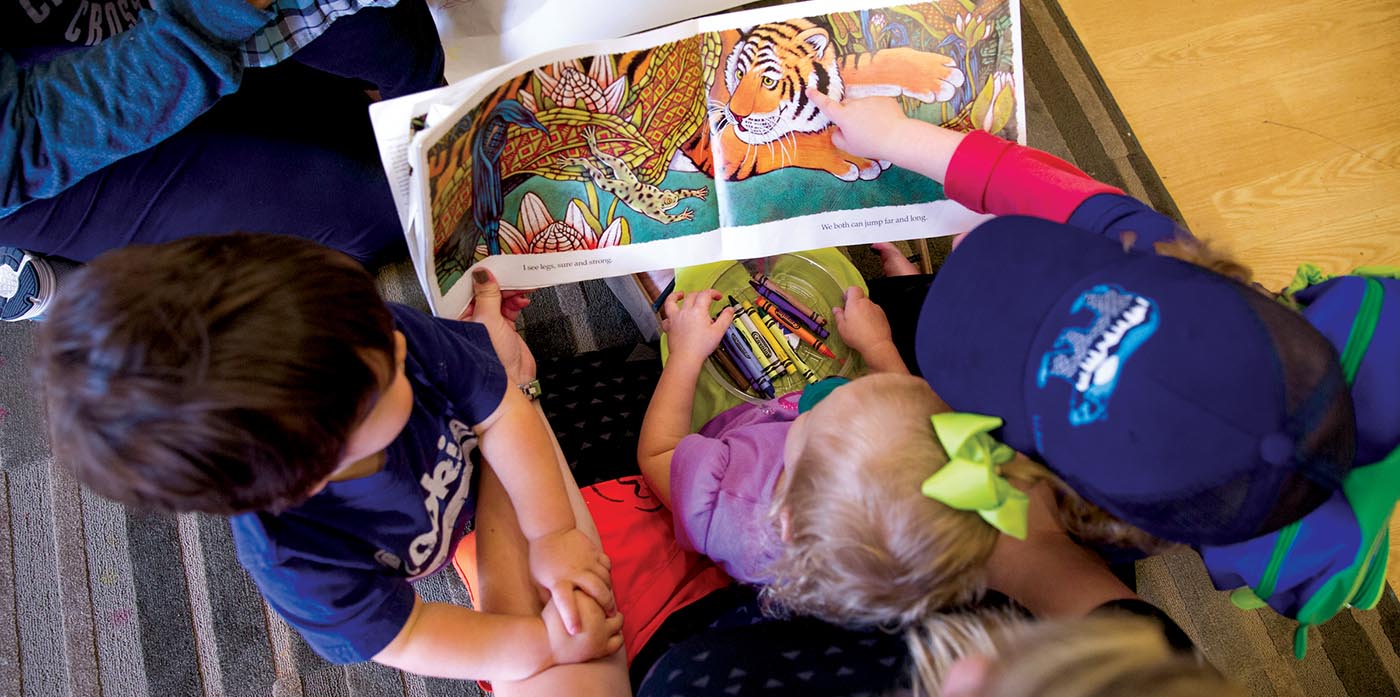Sit Together and Read (STAR) develops and strengthens young children’s awareness of and knowledge about print through interactive and innovative read-aloud practices. Designed for both educators and families, Crane scientists developed these practices based on years of research showing that reading together with children supports positive development of these early literacy skills.
The STAR Read-Aloud Practices have grown into a body of programs, each tailored to a unique setting in which adults and children share together in book reading. Keep reading for an overview of the programs, along with a link to the STAR website where you can access materials and more information.
STAR PROGRAMS
Sit Together And Read-2 (STAR-2)
STAR in Early Childhood Special Education Classrooms in Ohio study was a randomized controlled trial conducted between 2008-2012 that examined the efficacy of a print-referencing intervention designed to improve pre-reading skills. The study was made up of preschool-aged children in early childhood special education classrooms with primary language impairments, and the program examined efficacy in both short-term (within the preschool year) and long-term (through kindergarten entry) outcomes. This study was funded by the Institute of Education Sciences. Data downloads are available here.
Sit Together And Read-3 (STAR-3)
The STAR-3 study was a 15-week adult-child home reading program designed to improve children’s early literacy skills at home. The STAR lessons are organized around widely available storybooks with high-quality content.
Sit Together And Read (STAR-Ohio)
The fourth study of the STAR book-reading program, STAR-Ohio, broadened the scope of the program through a distance-learning approach including a program website and online professional development. Seventy-four teachers and approximately 2000 children in their classrooms participated in this innovative and scaled-up version of the program.
STAR@HOME
STAR@HOME examines the extent to which the STAR reading program can foster teacher-parent engagement through literacy activities.
STAR-K
STAR-K (funded by the OSU Opioid Innovation Fund) will pilot the STAR intervention in a group of kinship caregivers and children affected by parental opioid use.
STAR-HL
STAR-HL is a pilot study that will gather preliminary data regarding the feasibility of a parent-implemented STAR intervention for children with hearing loss skills.
STAR ESPAÑOL
STAR Español was the first adaption of the STAR Read-Aloud Practices targeted for children speaking only Spanish. Children in the study also had a language impairment, and the aim of the study was to see if children could improve their print and alphabet.
STAR WEBSITE
The STAR website has more information about STAR programs as well as free, downloadable materials for educators and caregivers.
MEET THE STAR TEAM



